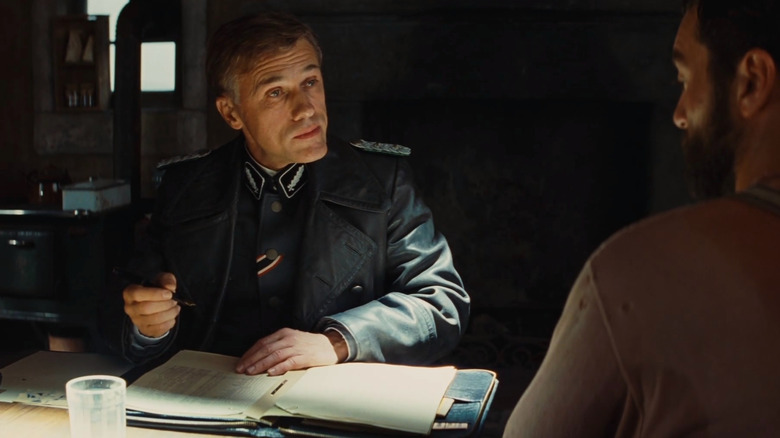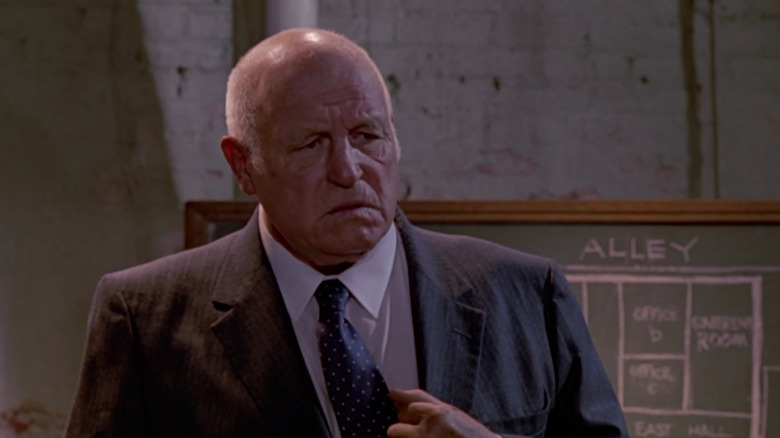Planning Doesn't Play A Large Part In Quentin Tarantino's Scriptwriting Process
Some writers start with elaborate outlines for their stories, planning out the beats of what will happen or starting with the ending and reverse-engineering everything from there. Quentin Tarantino doesn't roll like that. Though his filmography has inspired legions of fans and numerous imitators, Tarantino has said in the past that he considers himself more a writer than a director, and his two Academy Awards to date are both for screenwriting (though he's also been nominated for directing, and is now a budding novelist as well). While every writer's process is different, Tarantino's seems to be fluid and indeed not wedded to a great deal of planning.
In a 2009 interview to promote what may be his best film, "Inglourious Basterds," Tarantino discussed his screenwriting process, telling Filmmaker magazine:
"I don't have an outline or anything like that. I might have a really good idea of what the next few scenes are going to be, and I know a lot of scenes along the way that I need to get to, but I never know the end. I might think I know the end, but usually it turns out I don't know the end."
Tarantino also spoke of letting each story take him where it will, adding: "One of the things I've actually learned over the course of time is: It might make you feel better to think you have your scenes more or less mapped out to the end, but by the time you get to the middle the f****** story is so completely different. You have different concerns and new things have come up that make those old issues you had seem irrelevant. Maybe [an outline] can help you out for the first half of your story, but once you get going that stuff will take care of itself."
Peck-typing Shakespeare
It makes sense, given the surprises and sudden character deaths in some of his movies, that Tarantino might prefer to work from scene to scene rather than adhere to some rigid story plan. He's known for writing his scripts out by hand first, but at the time of "Inglourious Basterds," his next old-fashioned step was to transcribe them through peck-typing on a word processor. Going through his scripts this way also helped him edit them. Tarantino further explained to Filmmaker:
"I have this gigantic manuscript, all handwritten, and then I type it up on a little Smith Corona word processor. But I don't type, so I just type it with one finger. It's a long, arduous process, but I've been doing it ever since 'Reservoir Dogs.' It's a really good method to edit your writing, because, you know, you tend to overwrite by hand — although people have accused me of overwriting anyway! [laughs] And when you type it up with one finger, you correct that real quickly. Because basically, if I've got to do 160 pages with one finger, if it's not Shakespeare, it's got to go. [The process] becomes a really good filter."
In addition to filtering out stuff he didn't need, the peck-typing ritual sometimes led to new scenes that weren't in Tarantino's original handwritten drafts. An example of this is the "Reservoir Dogs" scene where, as Tarantino put it, "Lawrence Tierney's handing out the names for the characters, and then they get into an argument" over who's going to have what color as their code name.
"That wasn't in the handwritten script," Tarantino revealed. "I was just typing it up and then they got into a little argument." So, it seems we have Smith Corona to thank for some of your favorite Tarantino movie moments.

